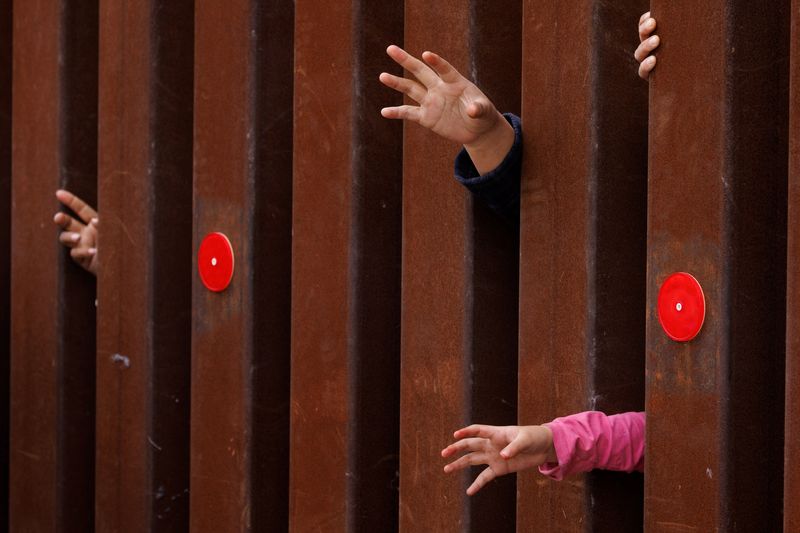Biden administration wins partial nix of court pact on child migrant detention
2024.07.01 18:35
By Daniel Wiessner
(Reuters) – A federal judge in Los Angeles partially terminated a nearly 30-year-old settlement agreement that established minimum standards for housing unaccompanied migrant children in detention facilities.
U.S. District Judge Dolly Gee in a written order on Friday said a rule adopted by the U.S. Department of Health and Human Services in April adequately implements the key aspects of the 1997 settlement agreement and court supervision is likely no longer required.
Gee also agreed with the Biden administration that the pact, known as the Flores settlement agreement or FSA, was no longer workable because Texas and Florida have stopped licensing migrant childcare programs.
The agreement had required that migrant children be placed in state-licensed programs, and about 25% of all unaccompanied minors are ultimately released to those two Republican-led states.
“The FSA did not account for what would happen if state licensure was no longer available, and Defendants have offered a reasonable workaround based on their experience implementing the FSA,” wrote Gee, an appointee of Democratic President Barack Obama who has presided over the case since 2015.
HHS and lawyers who represent the plaintiffs in the long-running case did not immediately respond to requests for comment.
The Flores settlement, named for a 1985 class action lawsuit, established standards for licensing and monitoring facilities and generally places a 20-day limit on detaining children who enter the U.S. illegally.
The settlement was meant to establish temporary guidelines until federal agencies could adopt a rule enshrining similar protections, but instead has guided the detention of unaccompanied child migrants for more than a quarter-century.
HHS had asked the court to partially terminate the agreement in May. It said its new rule codifies the essential provisions of the settlement while implementing additional protections for children. Those include expanded post-release services and a requirement that care providers use “culturally sensitive” behavior management practices, according to the agency.
Advocacy groups, which had brought the case on behalf of a group of child migrants, countered that the rule should not replace the settlement because it does not provide for an independent monitor akin to court oversight or a mechanism for reporting abuse, and fails to ensure that facilities in Texas and Florida are adequate.

Gee rejected each of those claims on Friday. The judge said the rule requires that facilities be accredited by an independent organization and creates an ombudsman’s office that can investigate reports of abuse and refer cases to HHS or the U.S. Department of Justice.
Gee, however, said she was retaining the ability to reconsider her ruling pending future developments. She noted that a group of Republicans in Congress have introduced a proposal that would repeal the April rule, which would leave migrant children without any protections if the Flores agreement were also permanently terminated.








